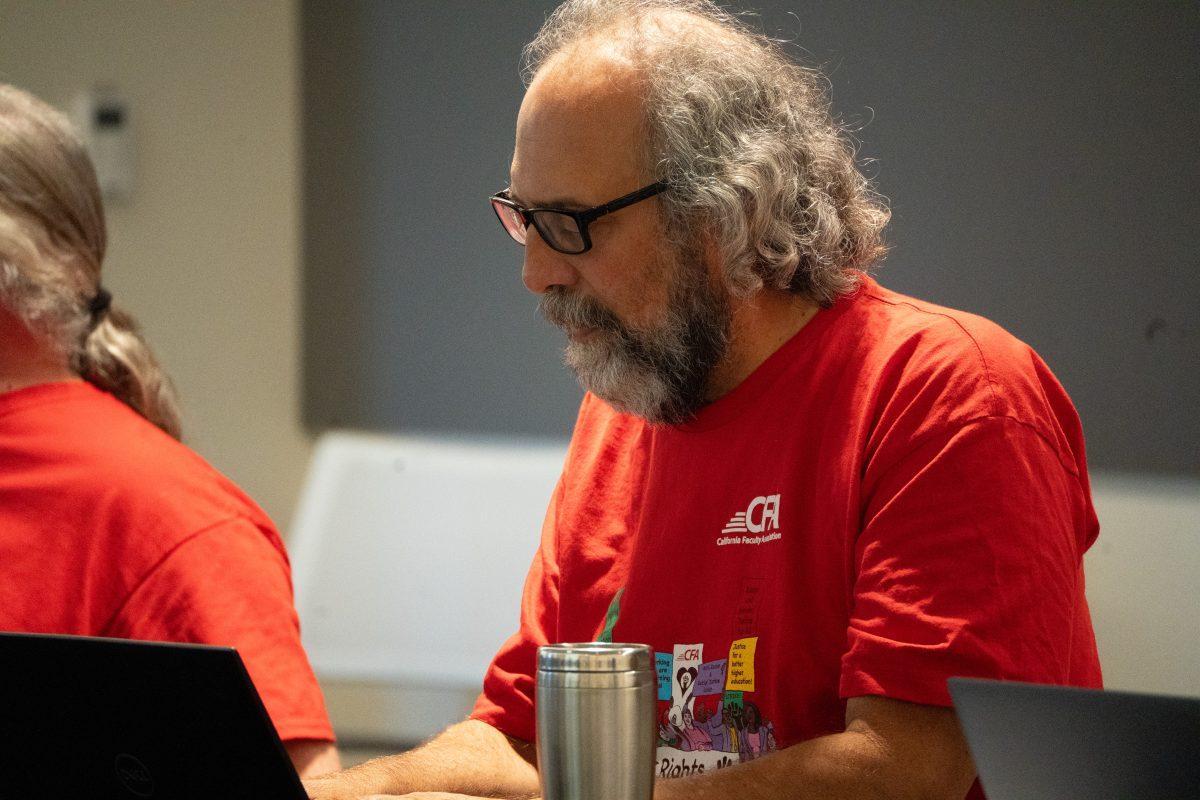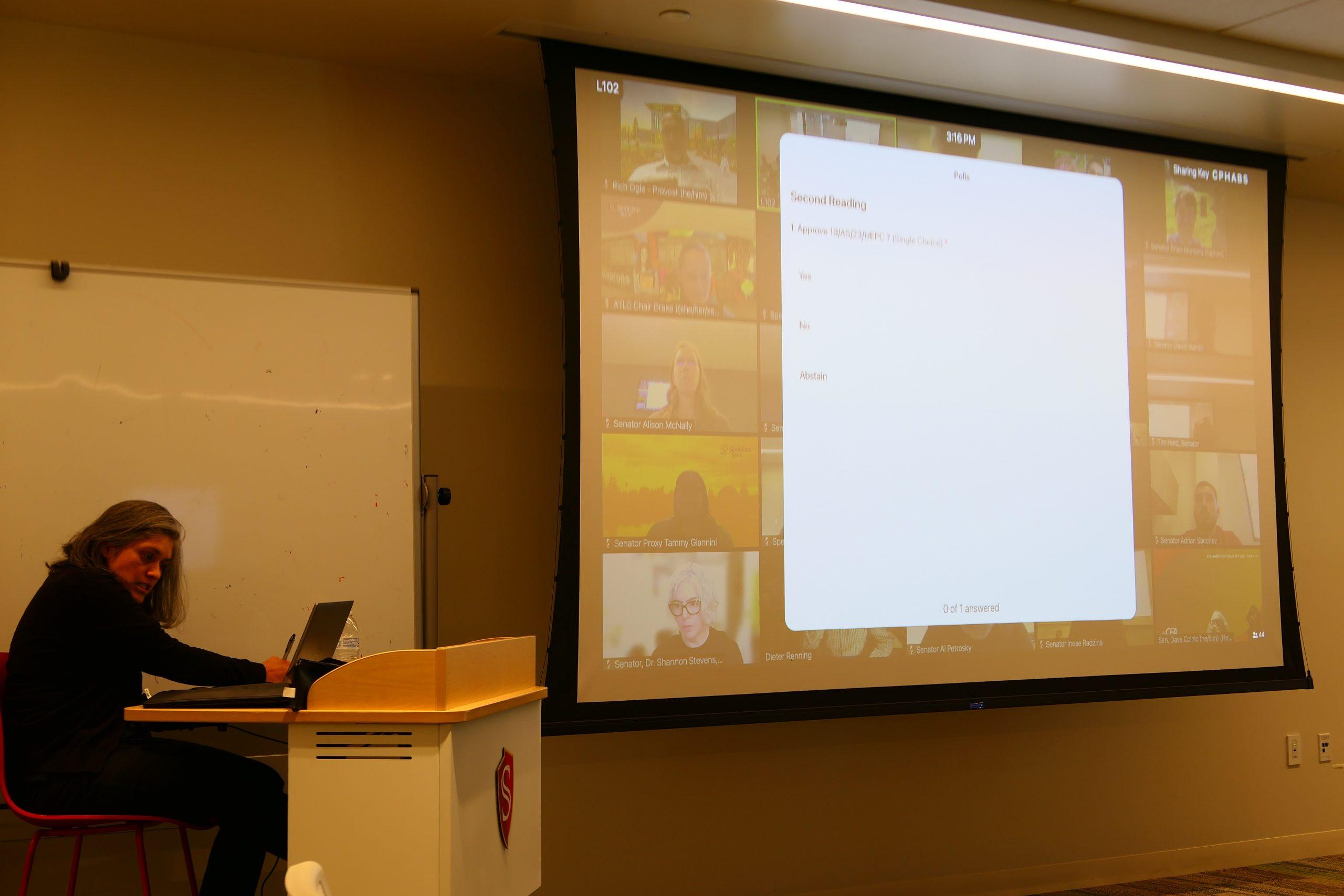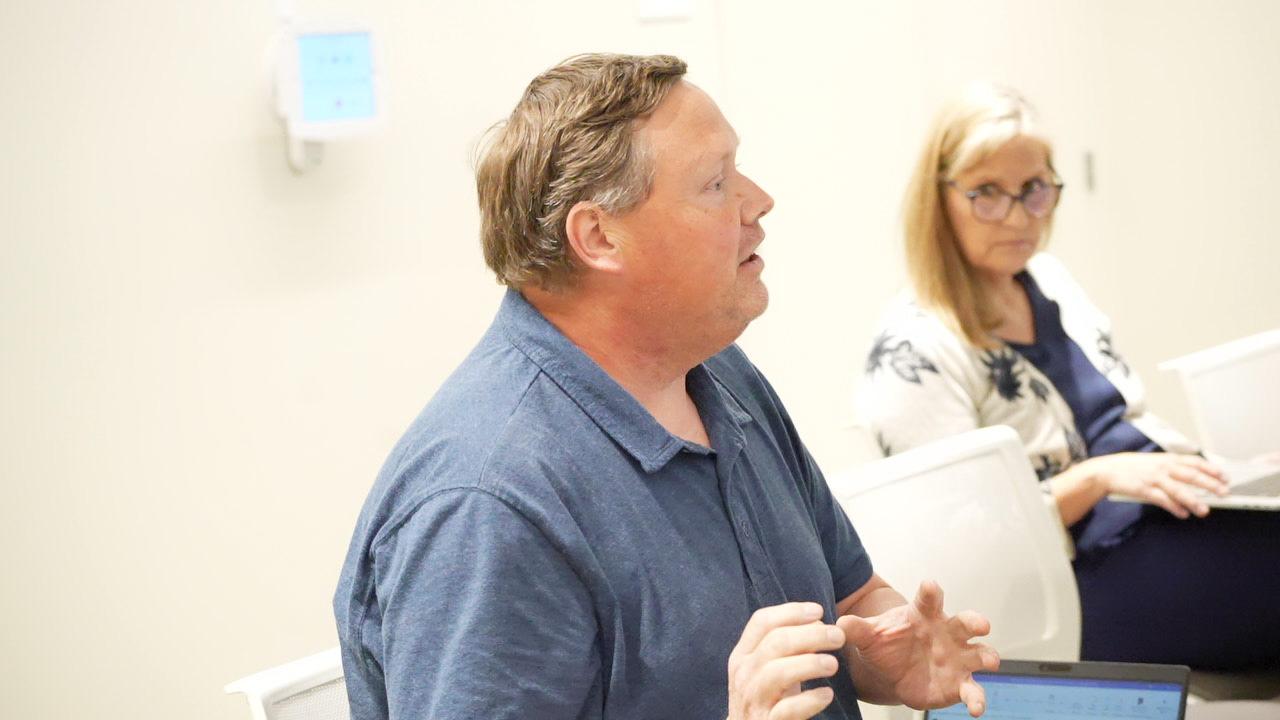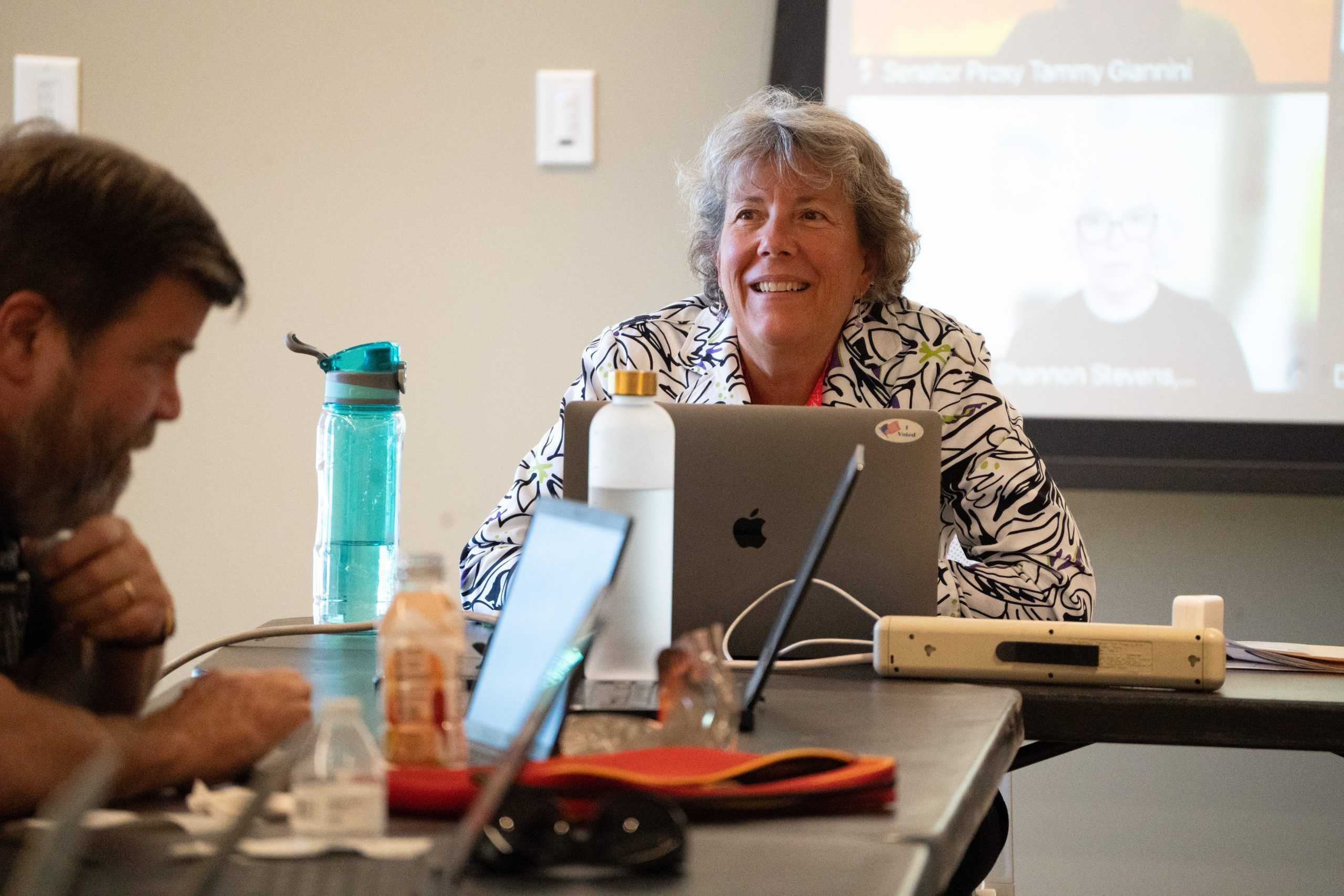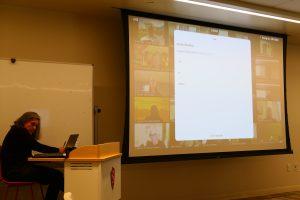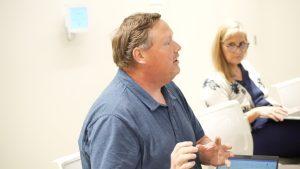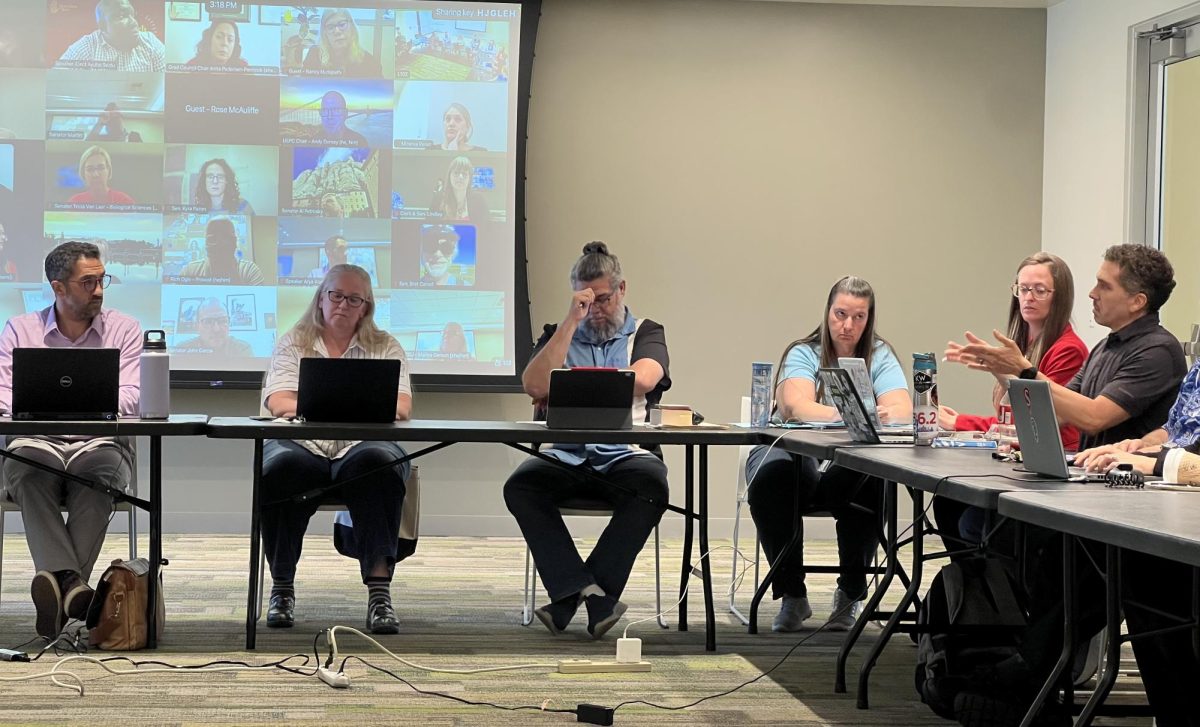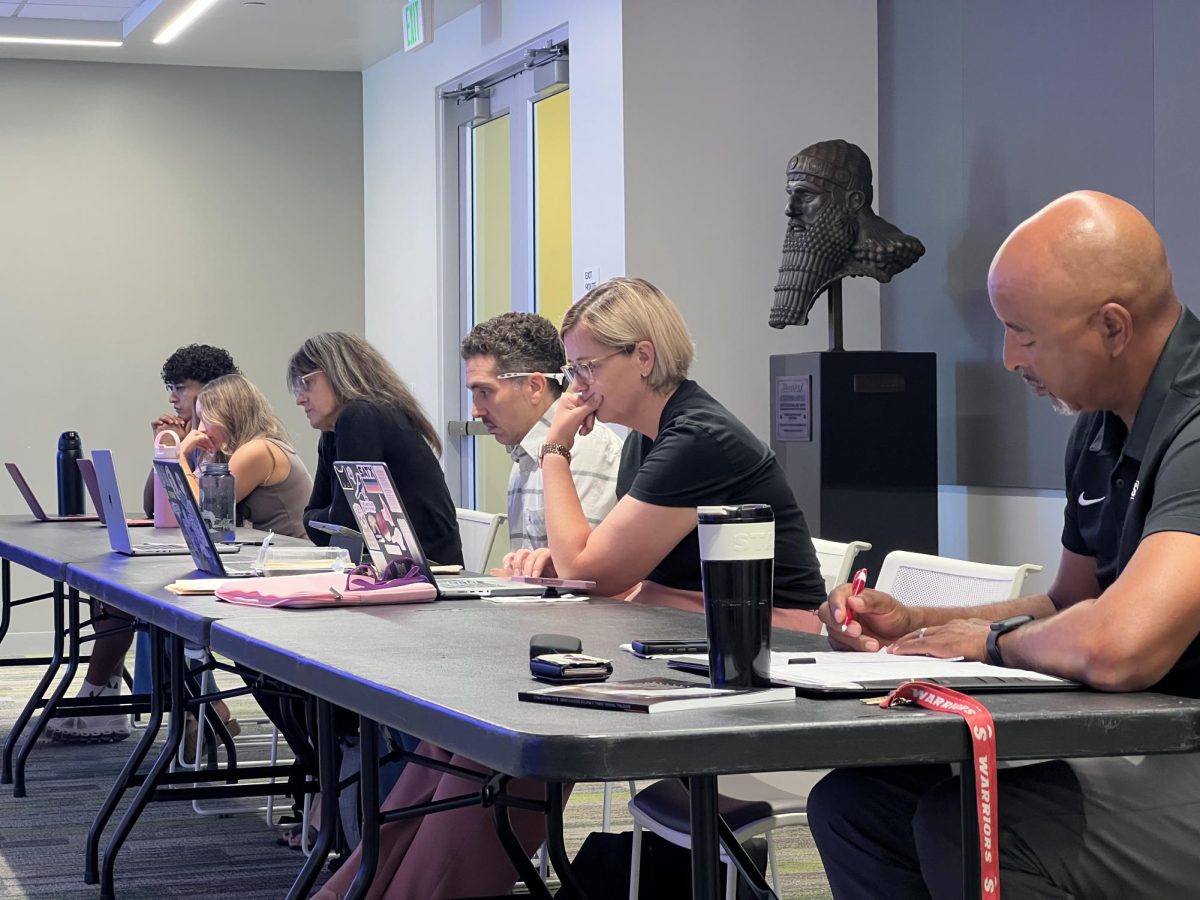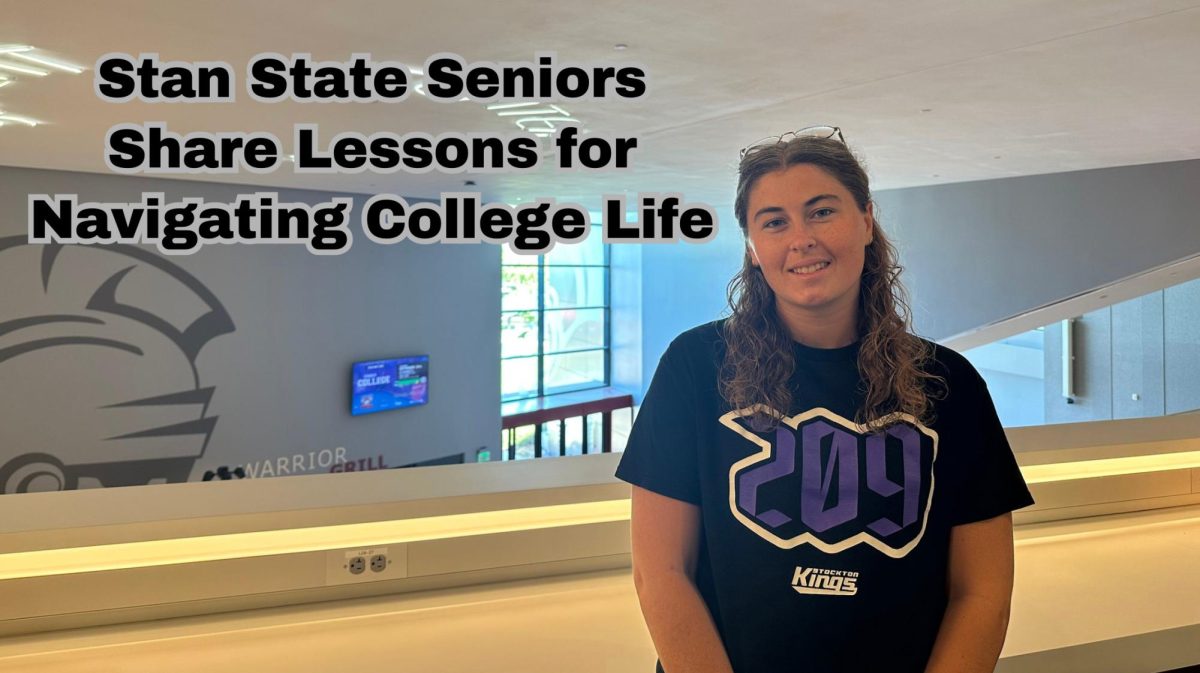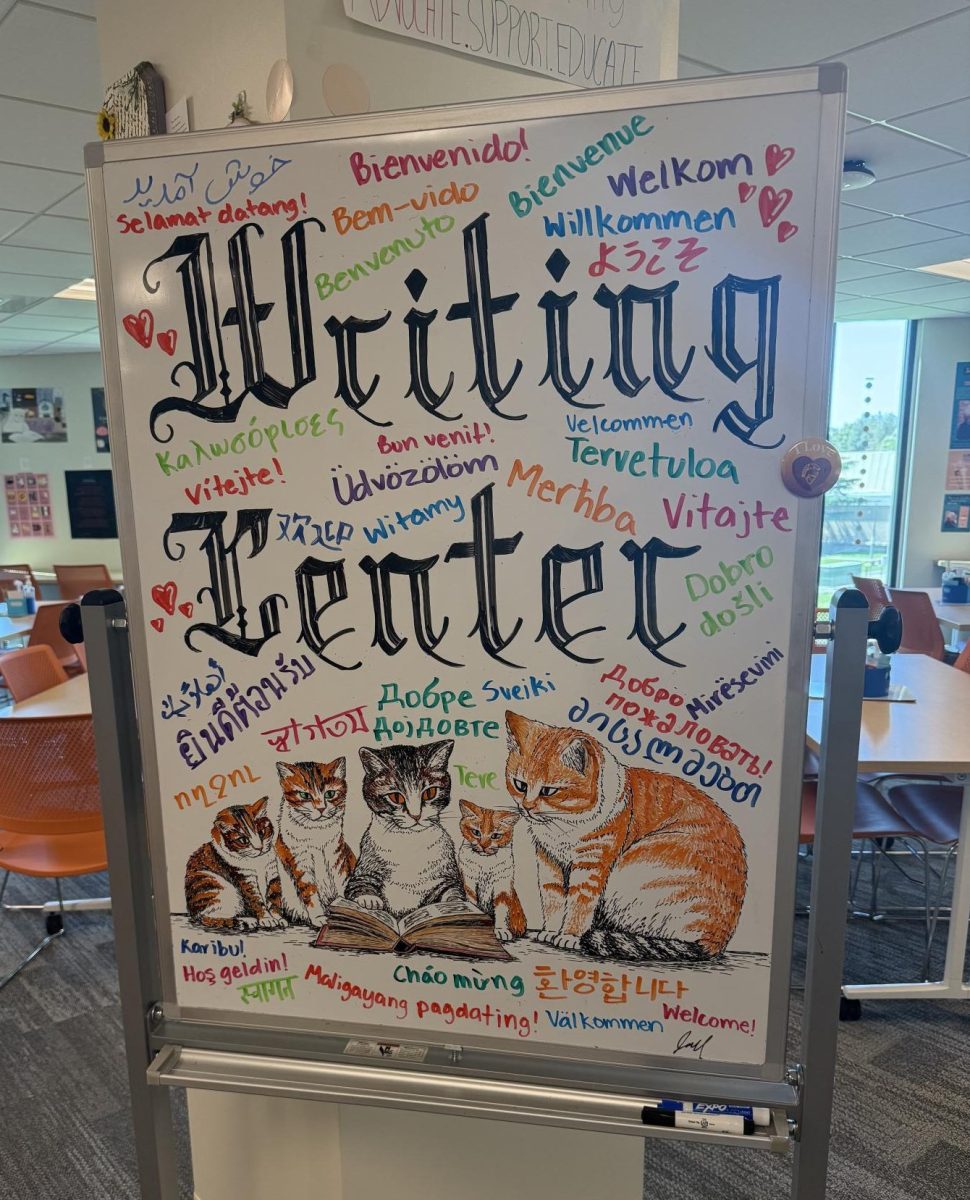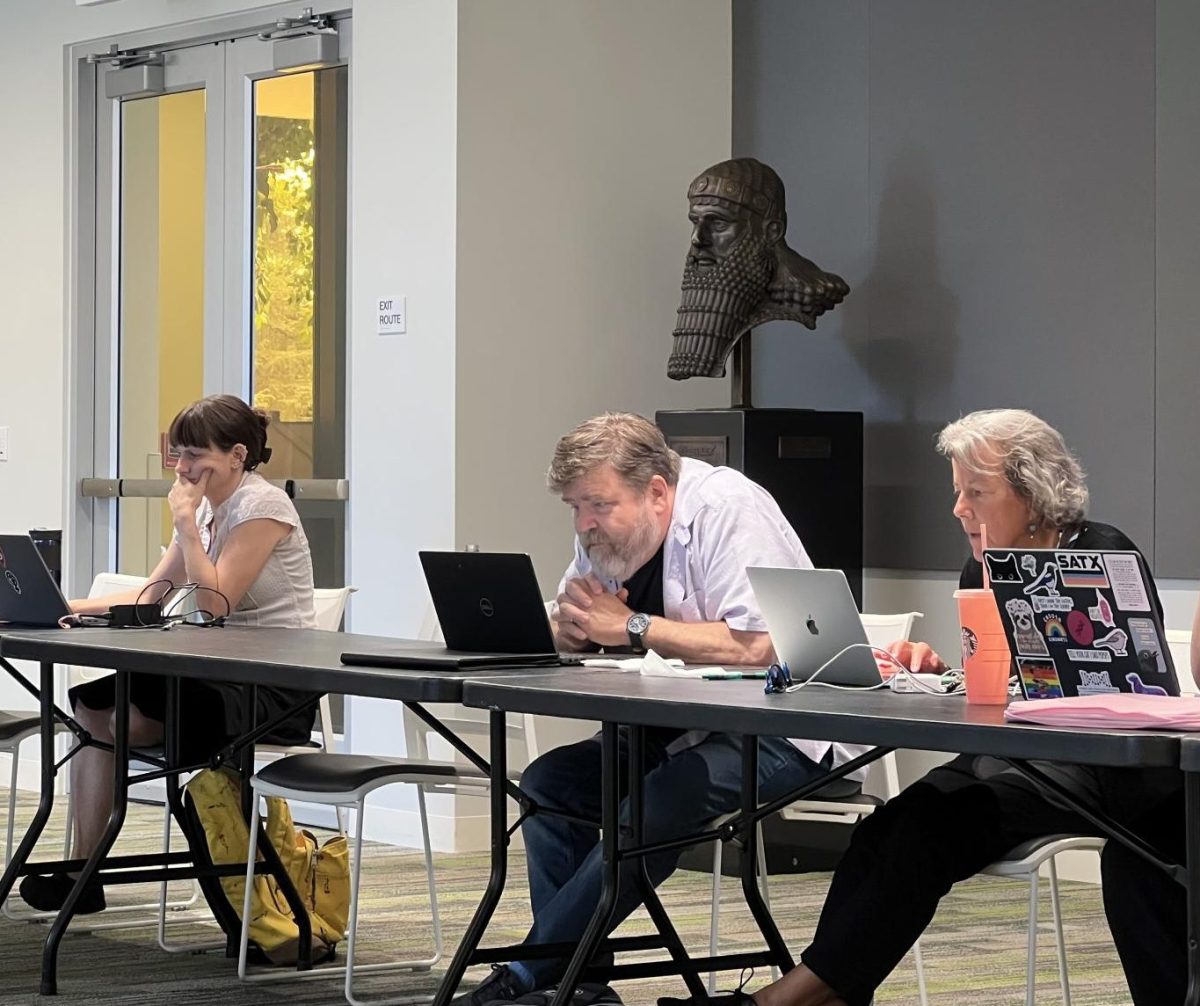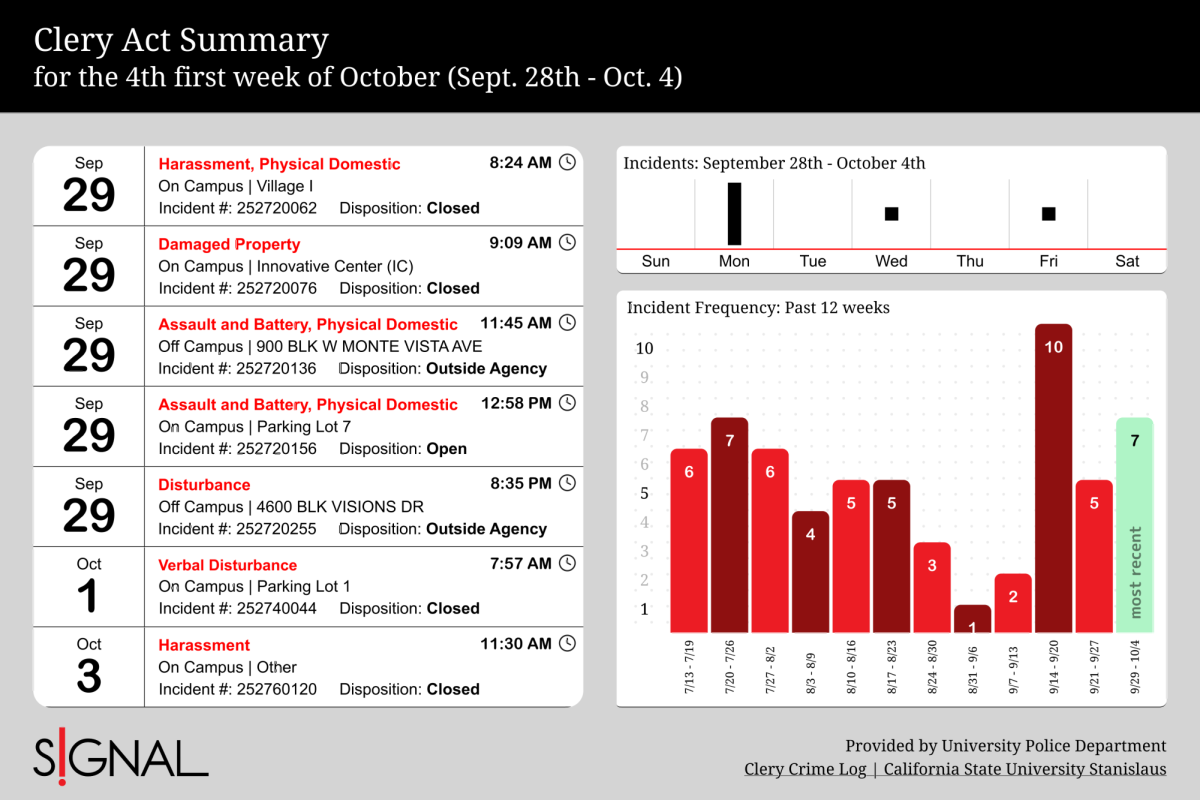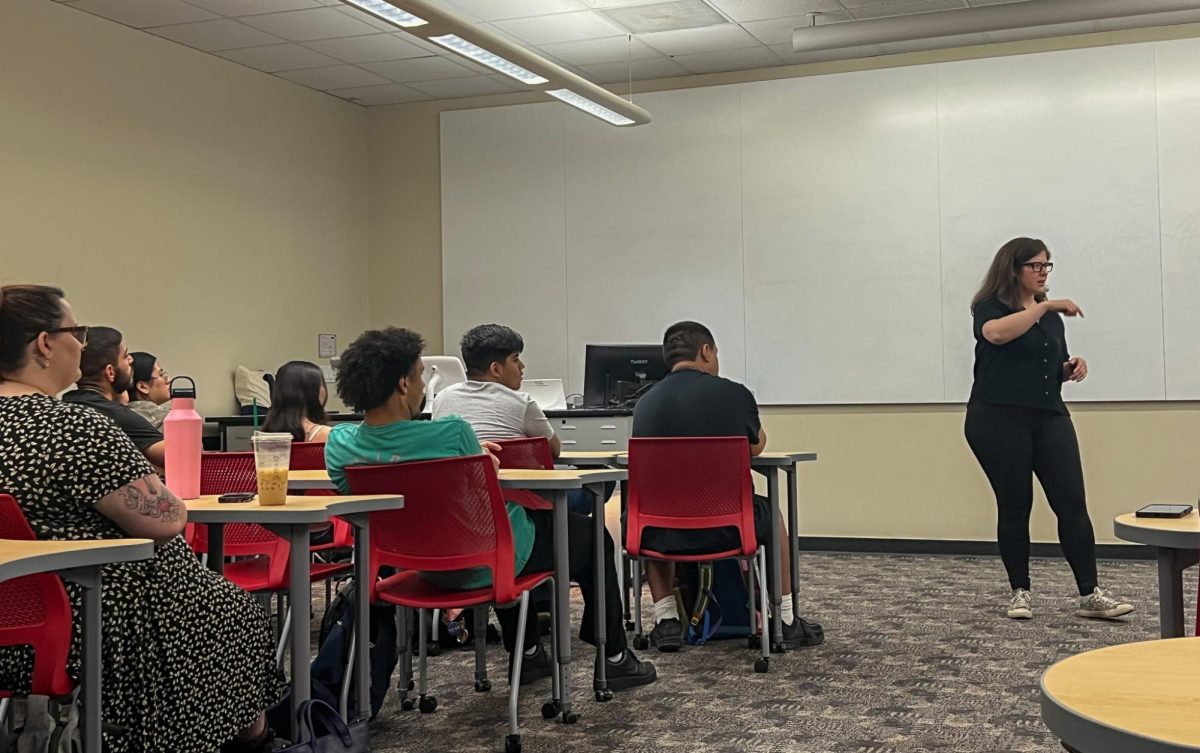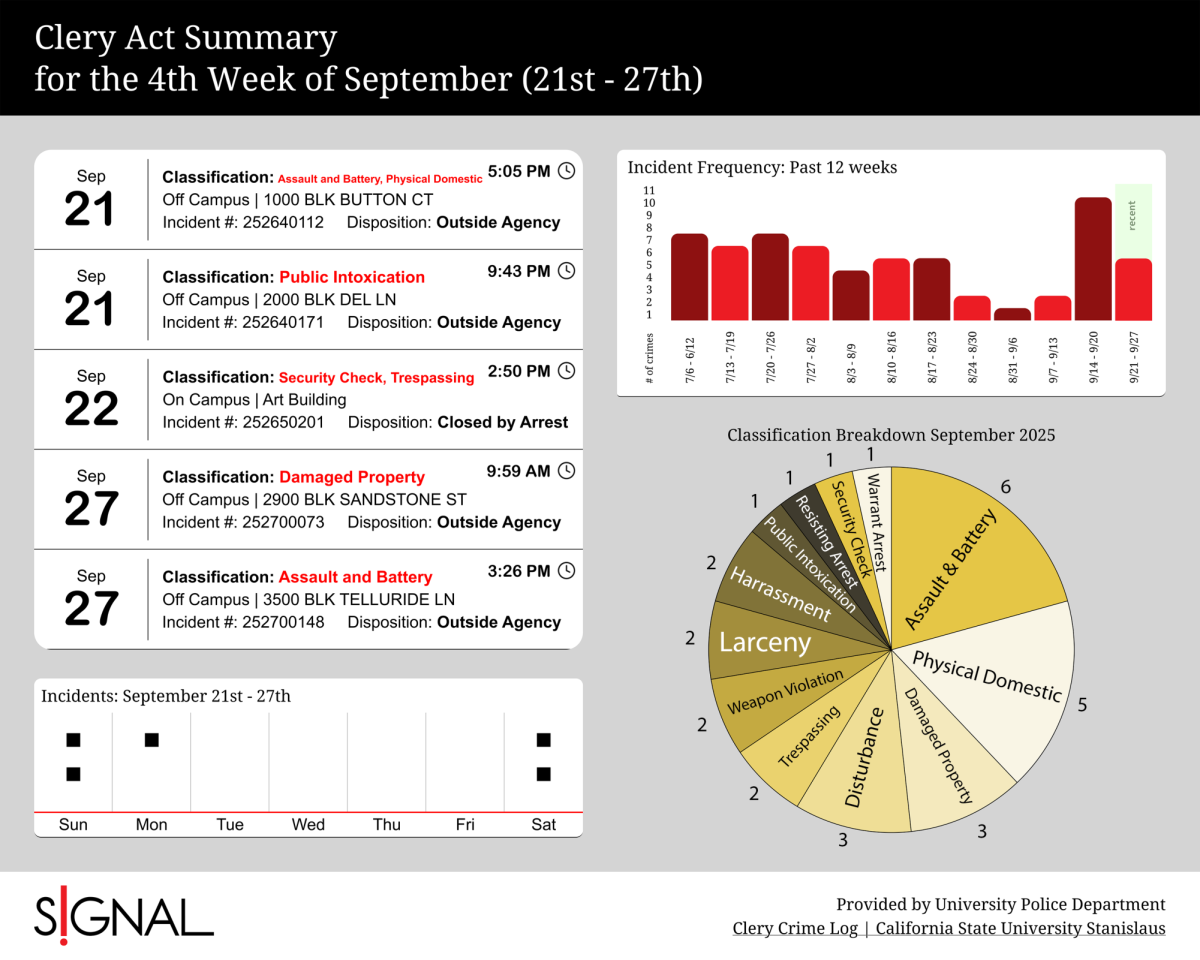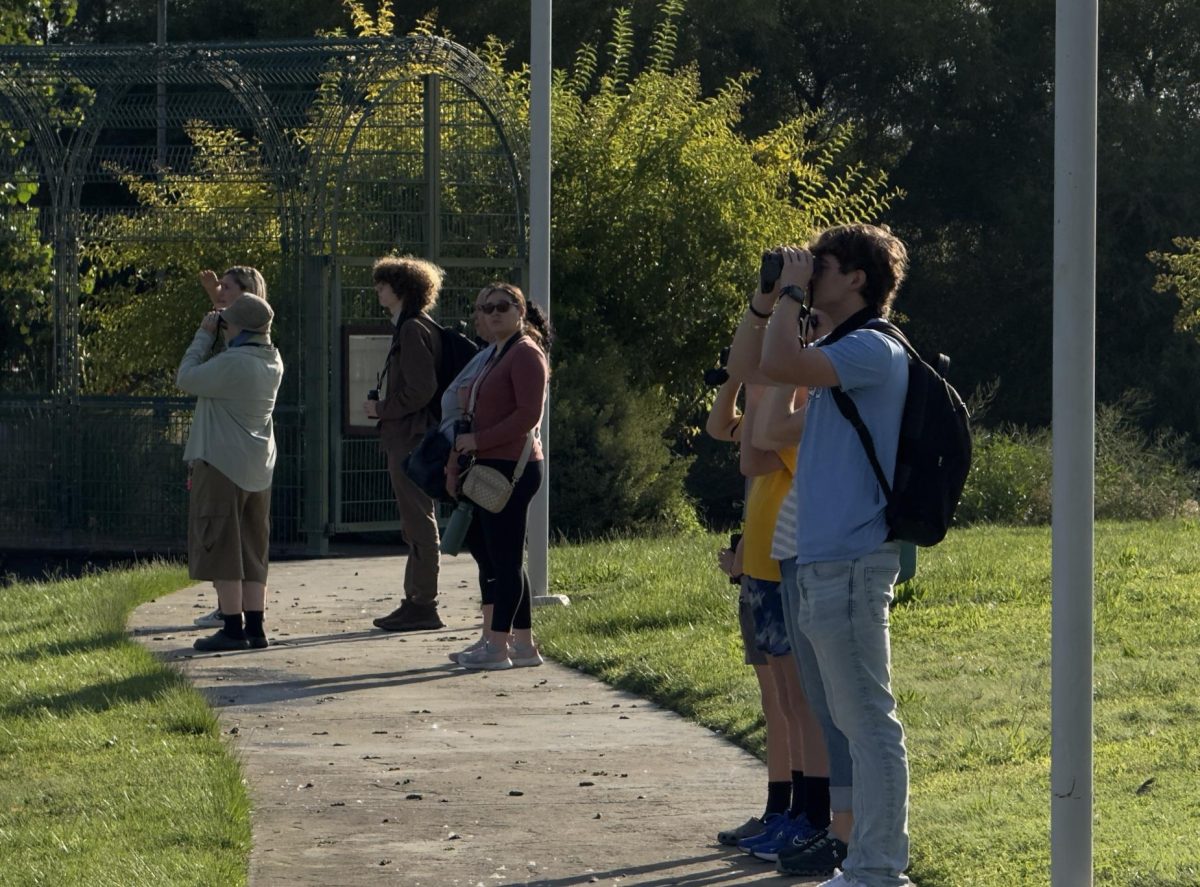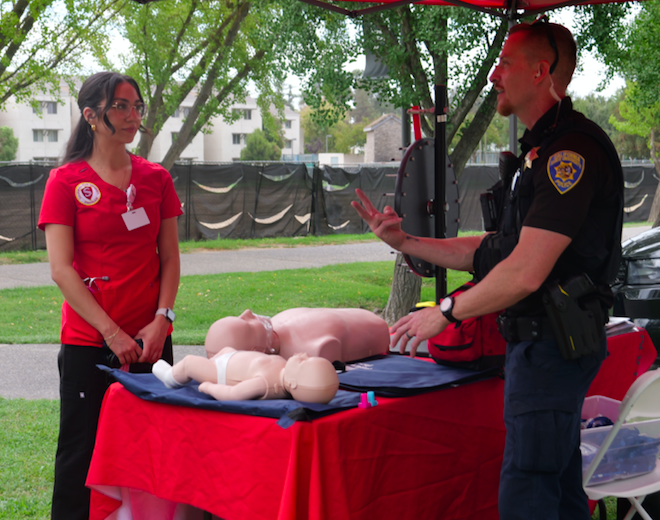Tuesday’s Academic Senate meeting had Senators airing grievances regarding lecturers’ missing pay, the recent tuition increase, and interdepartmental conflict over jurisdiction and shared governance.
Legislation that extended students’ rights to opt for an alternative grading scale for their required first-year classes to Stretch courses so they can turn failing grades into No Credit so that the grade does not affect their GPA. Students can opt for this grading structure both during the course or have it changed retroactively.
Resolutions that were brought to the table for a first reading included the creation of a new Medical Anthropology minor and instructors’ right to withdraw students absent or uncommunicative on the first day of class from their online courses to make room for those on the waitlist.
Senators Air their Grievances
The first grievance was aired by ASI President Adrian Sanchez, stating that the body opposes the CSU’s tuition increase and that they are working closely with the financial aid office to reduce the upcoming financial burden.
Dr. Ann Strahm, a professor of Sociology, was a guest at the meeting who raised a point about undocumented students not receiving FAFSA.
Sanchez replied that they were currently focused on the general student body, but as information comes in about how other demographics are affected, they will address those issues.
In his CFA report, Dr. Dave Colnic announced that a number of lecturers did not receive their SSI checks, which are intended to compensate for their static low base salary. Additionally, newly promoted and tenured faculty did not have their raises reflected on their latest paycheck.
“I wish we didn’t have to have this conversation,” Dr. Colnic said, “This is not new on our campus.”
Dr. Colnic encouraged all faculty who believe they might have been entitled to an SSI check to reach out to the CFA to report the issue. The CFA is looking to grasp the scope of the issue, which they suspect is more far-reaching than what’s been reported so far.
If faculty members have any questions about whether or not they’re entitled to an SSI check or what the qualifications are, they are encouraged to contact the CFA as well.
Lastly, Speaker Marcy Chvasta read a statement about emails from the Senate Executive Committee (SEC) that were sent out from Dr. Chvasta’s email last week. The emails announced there would be an indefinite pause on faculty development programming at Faculty Center for Excellence in Teaching and Learning (FCETL).
Many Senators claimed that the SEC were acting out of their jurisdiction when they halted all FCETL activity over disagreements about FCETL’s process for approving new faculty development material.
This controversy led to the resignation of multiple FCETL members, including the center’s Director, Dr. Shradha Tibrewal.
As the conversation became heated, the Senate ran out of meeting time, and a vote was raised to continue this discussion at the next meeting with written statements prepared by the parties involved so that the Senators could come to an understanding about the controversy’s details.
At the moment, however, facts about the disagreement remain vague.
Resolution to Expand a Lenient Grading Option to More First-Year Courses Passes the Senate
The Senate passed a bill that was introduced in the previous meeting that would allow students enrolled in or previously enrolled in Stretch courses, first-year basic skills courses with a duration of two semesters, to opt for a grading scale that would mark a failing grade as No Credit so that the grade is not reflected on their GPA.
This option was already offered to standard, one semester long, first-year basic skills classes and for the second semester of the Stretch course, but now will be applicable to both semesters of the Stretch class.
Dr. Michael Bice, the Chair of the Math Department, made an appearance to argue for the importance of this resolution.
Dr. Bice explained that, as a consequence of a Chancellor’s Office resolution, students across the CSU system are being pre-registered for Math and English classes they might not be ready for. These unprepared students are more likely to fail the course.
Students who are enrolled in Stretch courses are those considered “not GE-ready” and often come from disadvantaged backgrounds. Therefore, GE-ready students having this grading option while students in Stretch courses do not was also an equity issue.
Taking Dr. Bice’s argument to heart, the Academic Senate voted in favor of it.
New Medical Anthropology Minor Proposed and Faculty’s Ability to Boot Students from their Classes to be Amended
The first reading items at this Senate meeting included a resolution which would establish a new minor called Medical Anthropology which would concentrate Health and Biological Anthropology courses into one academic pathway and another bill which would amend an existing policy that gives instructors the right to remove absent students from their classes.
Anthropology Professor Dr. Ryan Logan appeared to provide a brief statement about the purpose of the new minor.
Dr. Logan stated that nursing and other health-related fields are very popular majors at CSU Stanislaus and that this minor gives those students the opportunity to take a selection of Anthropology courses to earn this new minor.
This minor would give these health students a more comprehensive understanding of how culture and ideology shape people’s health, Dr. Logan argued.
The Senate will vote whether or not to establish this minor at their next meeting.
The amendment to the Instructor Withdrawal served to clear up confusion about instructors’ rights to withdraw absent students from their asynchronous online classes because they do not have a formal start time and date.
This amendment would make the start time and date for all asynchronous online courses the first instructional day of the semester at 8:00am.
As the policy stands, instructors need to give notice two days before the class begins that they intend to apply this policy.
In order to not be dropped from an online course applying this policy, a student must either access the course materials or inform the instructor that they plan to access the materials within 24 hours of 8:00am of the first instructional day.
The intention behind this policy, according to Senator Koni Stone, is that these asynchronous online classes are in high demand, and therefore have an urgent need to make space for students on the waitlist.
This resolution will also be put up for a vote at next week’s Senate meeting.
Academic Senate Tackles Missing Pay Raises, New Educational Policies, and the Limits of their Own Power
El presidente del capítulo de la CFA, Senador Dave Colnic, informa sobre el estado de las negociaciones contractuales y los numerosos problemas de nómina de este mes. (Foto de Signal/Brian Miske)
0
Donate to Signal
Your donation will support the student journalists of California State University, Stanislaus. Your contribution will allow us to purchase equipment and cover our annual website hosting costs.
More to Discover
About the Contributor

Nix Carbone-Deep, Senior Editor
Year: Graduate Student
Major: English
I love controversy and drama. Whenever something contentious or emotionally-charged pops up on-campus or in the wider political sphere, you can expect me to be there to cover it. I’ve reported on abortion access, labor disputes, CSU Board of Trustees’ decisions, federal court rulings, and more. However, I’m always most interested in how decisions like these, or sometimes even political indecision, affects everyday people and aim to shed light on their experiences. I’m into video games, tabletop roleplaying games, reading all kinds of genres (classic and contemporary novels, Renaissance drama, political theory, etc.), horror films, and history (political revolutions and the history of the sciences especially).


